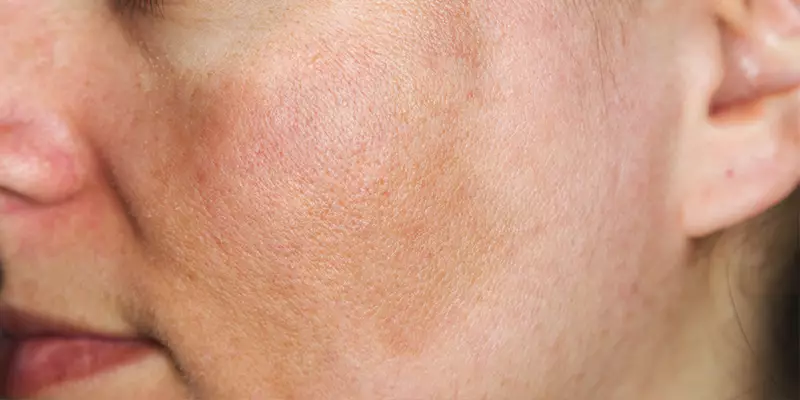Potential Causes of Pale Skin
Pale skin can be caused by a number of different factors. Some of the most common causes include sun damage, dehydration, and anemia. However, pale skin can also be a sign of more serious underlying health conditions, such as liver disease or cancer. If you are concerned about your pale skin, it is important to see a doctor for a full evaluation. They will be able to determine the cause of your paleness and provide the appropriate treatment. Here are the potential causes of pale skin:
Dehydration
One of the most common causes of pale skin is dehydration. When the body does not have enough fluid, it starts to pull water from the blood, leaving the skin looking dull and lifeless. Dehydration can also cause the blood vessels to constrict, which gives the skin a bluish tint. In severe cases, dehydration can lead to shock and even death. Signs of dehydration include thirst, fatigue, headaches, and dark urine. If you think you might be dehydrated, it’s important to drink plenty of fluids and see a doctor as soon as possible.
Anemia
Another common cause of pale skin is anemia, which is a condition in which there is a lack of red blood cells in the body. Anemia can cause fatigue and shortness of breath, as well as pale skin. The most common cause of anemia is iron deficiency, which can be remedied by taking iron supplement pills. However, there are other causes of anemia, such as blood loss or certain medical conditions. If you are concerned about your pale skin, it is best to see a doctor for a diagnosis.
Liver disease
Anyone who has ever seen a patient with liver disease knows that one of the most distinctive symptoms is pale skin. But why does liver disease cause this particular symptom? The answer lies in the role that the liver plays in the body’s overall metabolism. The liver is responsible for processing and excreting bilirubin, a pigment that is produced when red blood cells are broken down. In patients with liver disease, the bilirubin can build up in the blood, causing the yellowing of the skin known as jaundice. As the bilirubin level increases, it can also cause the skin to appear pale. This symptom can be one of the first signs of liver disease, and it is often what prompts patients to seek medical attention. While there are many different causes of liver disease, pale skin is a clear sign that something is wrong and that medical help should be sought.
Cancer
Cancer is a serious illness that can have a number of different effects on the body. One of the most common effects is anemia, which occurs when the body does not produce enough red blood cells. This can lead to pale skin, as well as fatigue and shortness of breath. Cancer can also cause inflammation, which can make the skin appear red or flushed. In addition, cancer can lead to the loss of appetite and weight loss, both of which can make the skin look thinner and more delicate. As you can see, cancer can have a significant impact on the appearance of the skin. If you are concerned about any changes in your skin, it is important to see a doctor so that any underlying medical conditions can be ruled out.
Medications
While there are many reasons why someone might have pale skin, one common cause is medication. Certain drugs, such as corticosteroids or chemotherapy agents, can interfere with the body’s production of pigment, resulting in a loss of color. In addition, some medications may cause the blood vessels to dilate, which can also lead to a pale appearance. If you are taking any medications that seem to be affecting your skin color, talk to your doctor to see if there are alternative options. In most cases, paleness is a temporary side effect that will resolve once the medication is discontinued. However, if the problem persists or is accompanied by other symptoms, it could be a sign of a more serious condition and should be evaluated by a healthcare professional.
Vitamin deficiency
Many people believe that pale skin is a sign of poor health, but in reality, it can be caused by a variety of factors. One common cause is vitamin deficiency. Vitamins are essential nutrients that the body needs to function properly. They help to support immune system function, blood cell production, and nerve function. A lack of certain vitamins, such as vitamin B12 or iron, can cause anemia and lead to pale skin.




